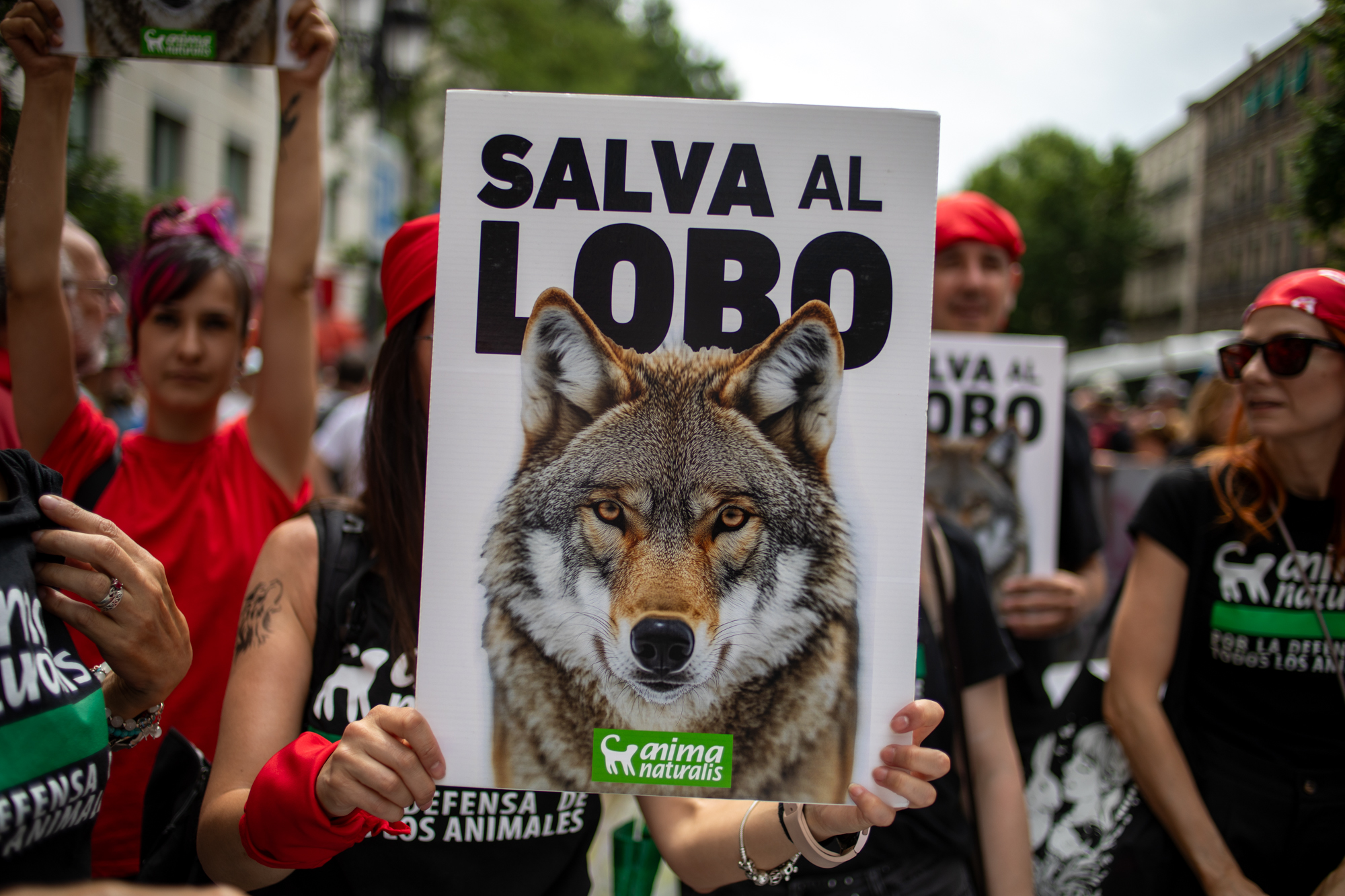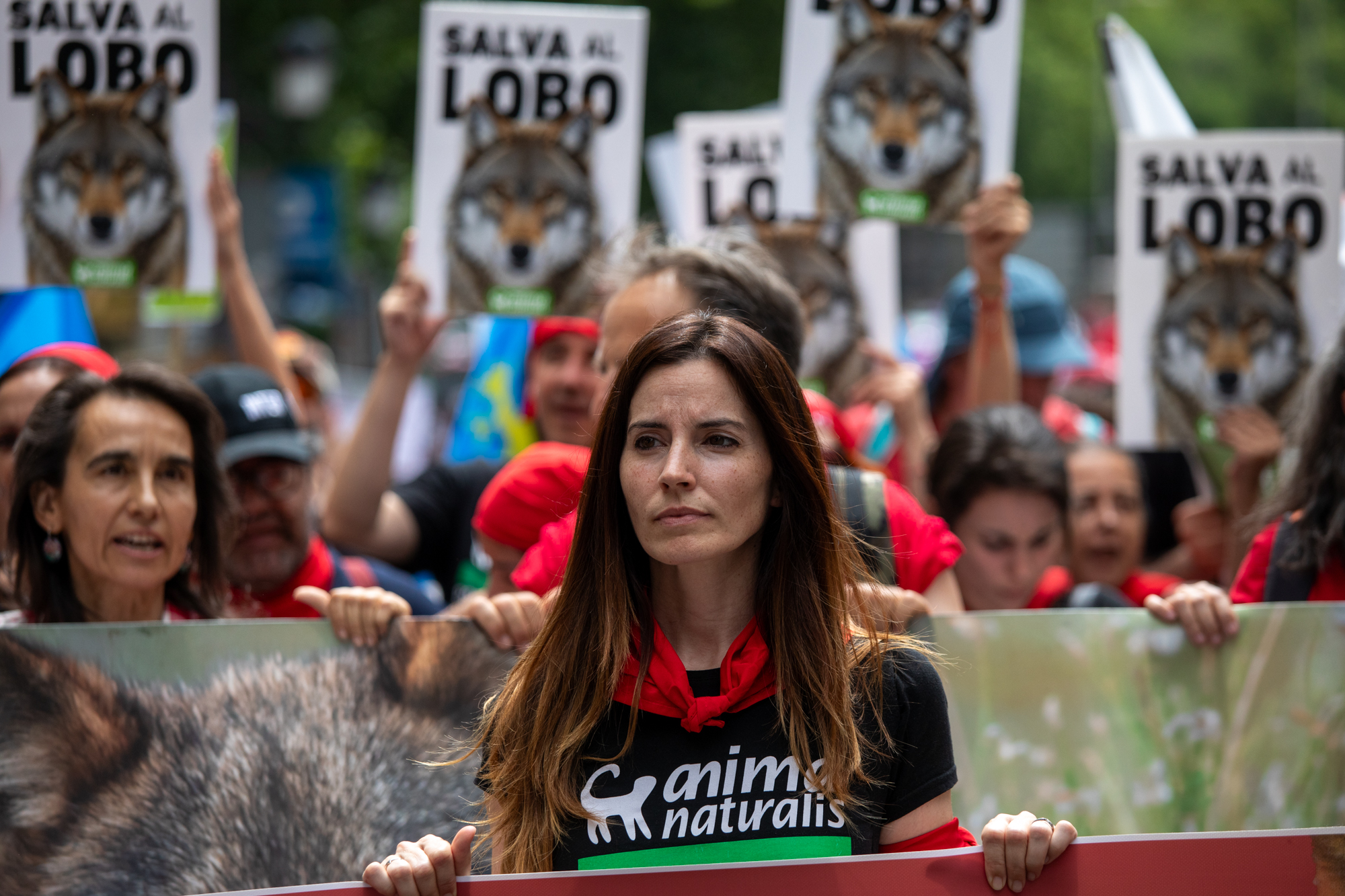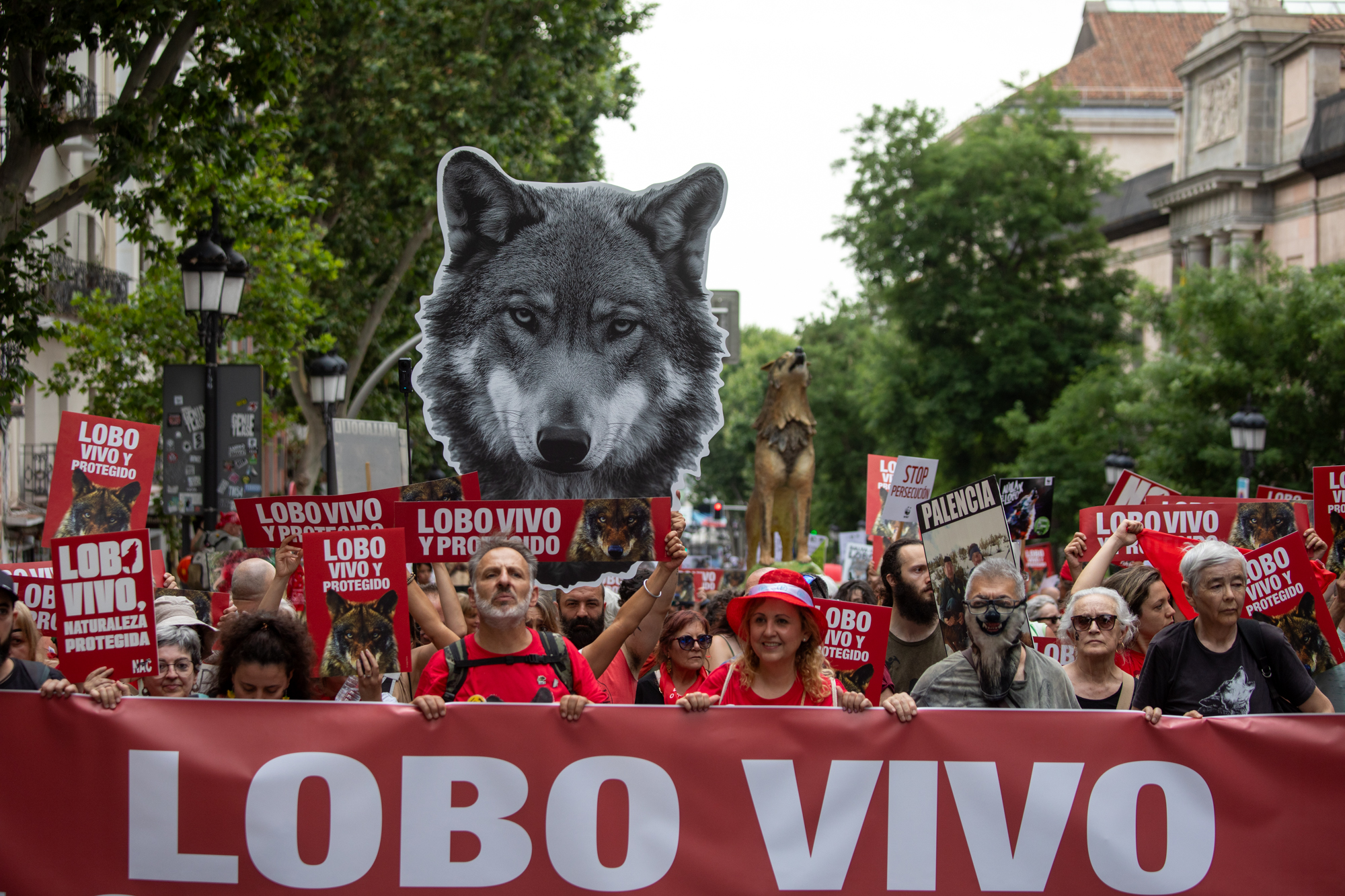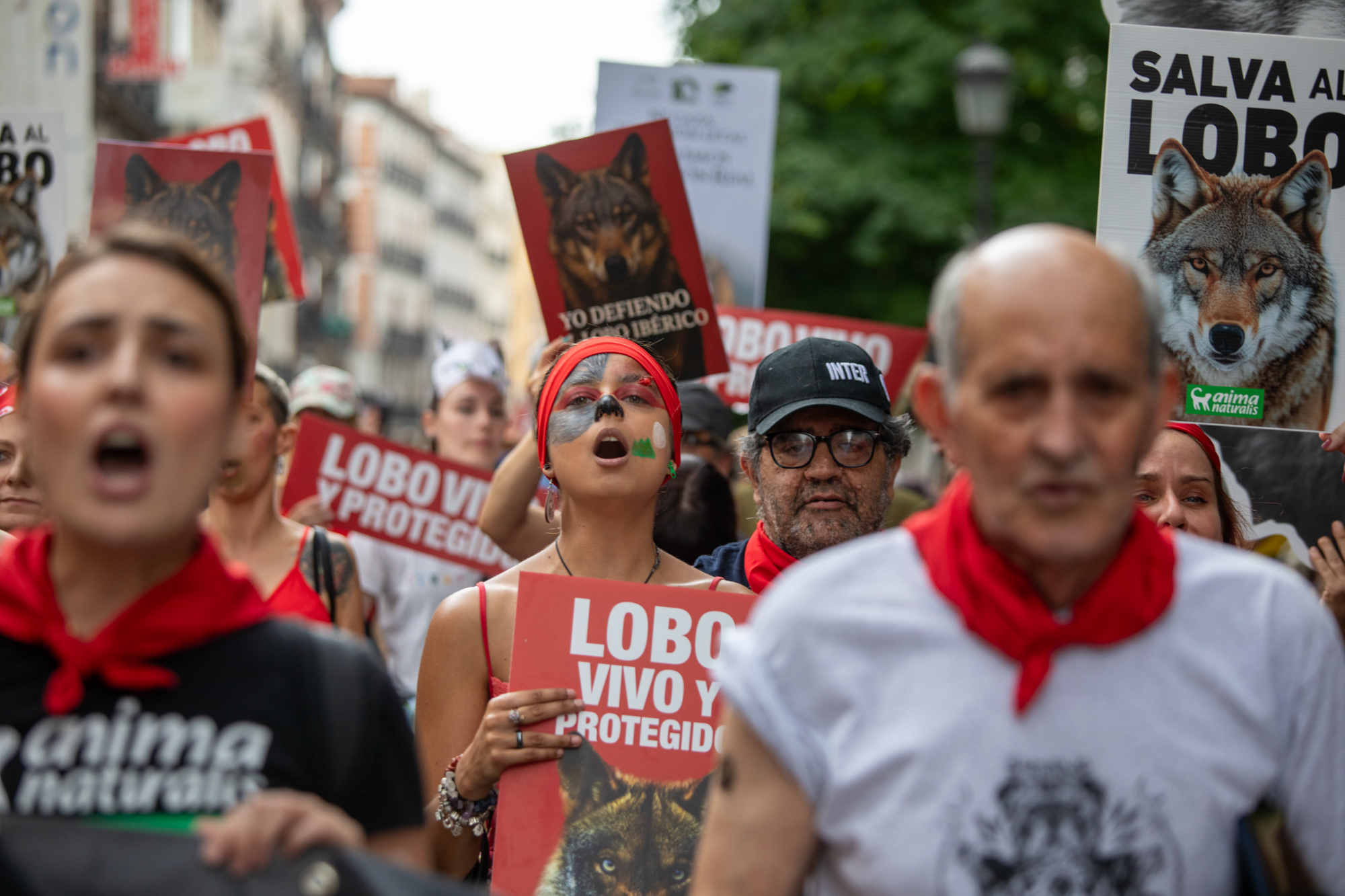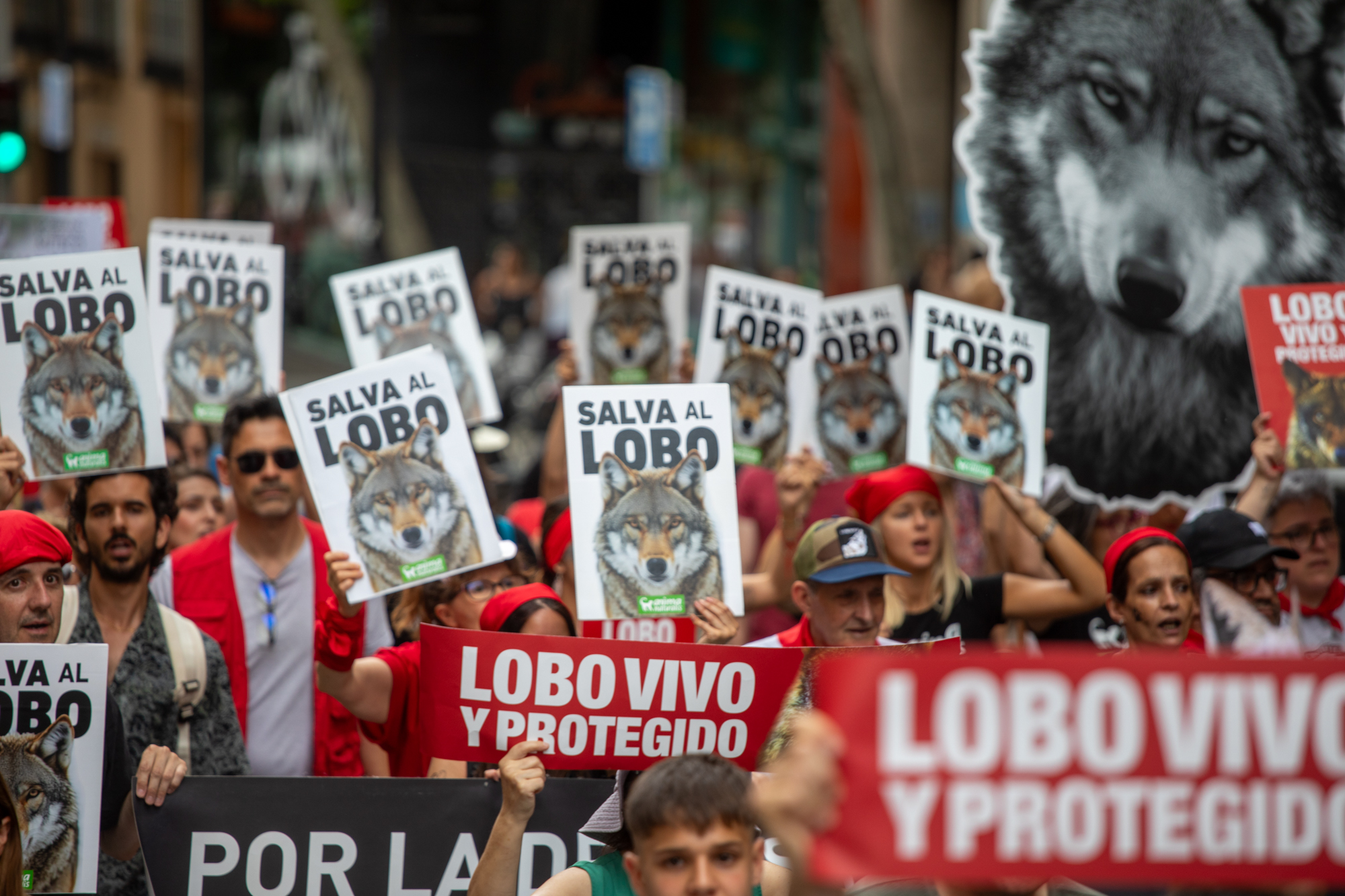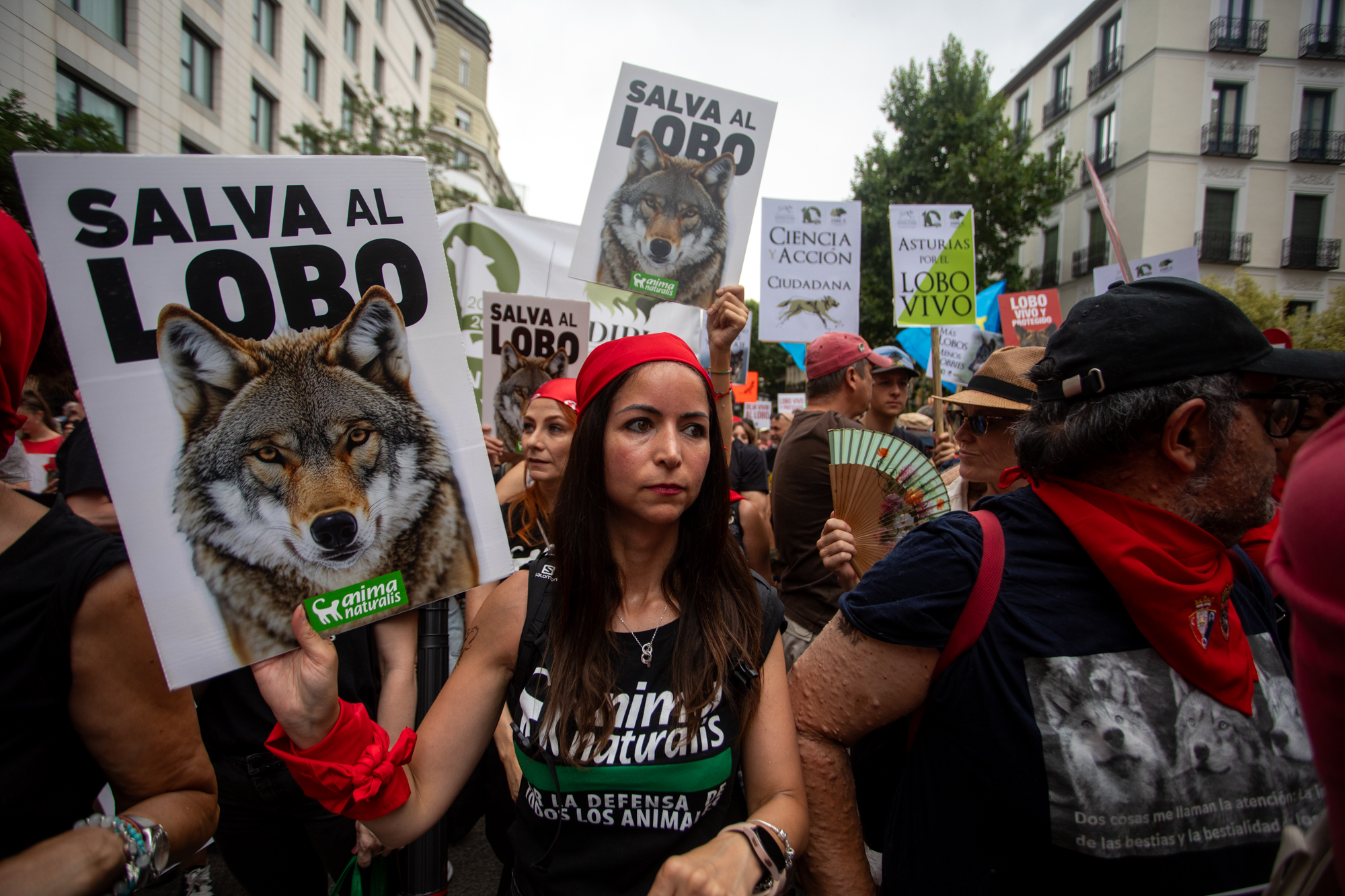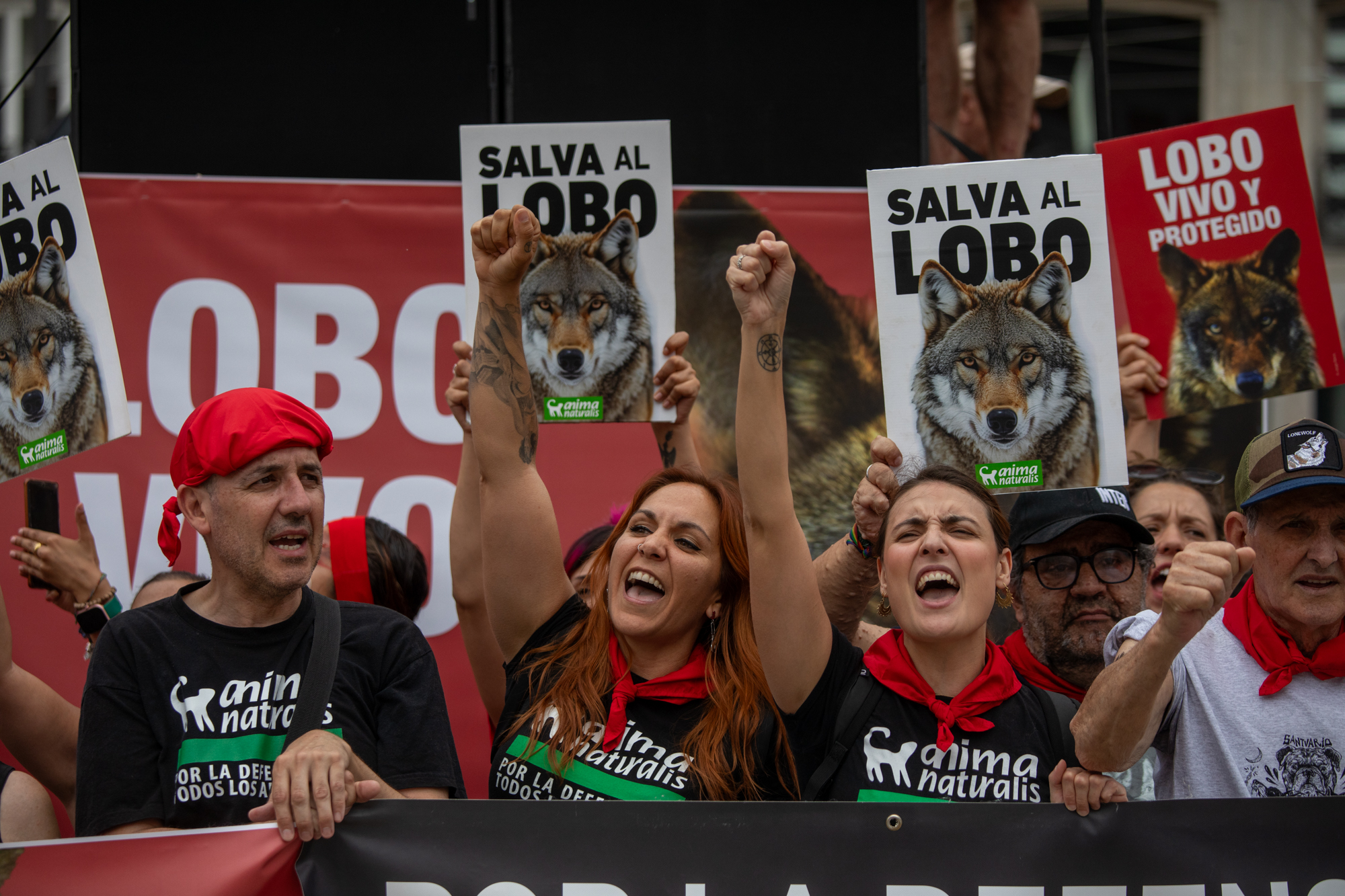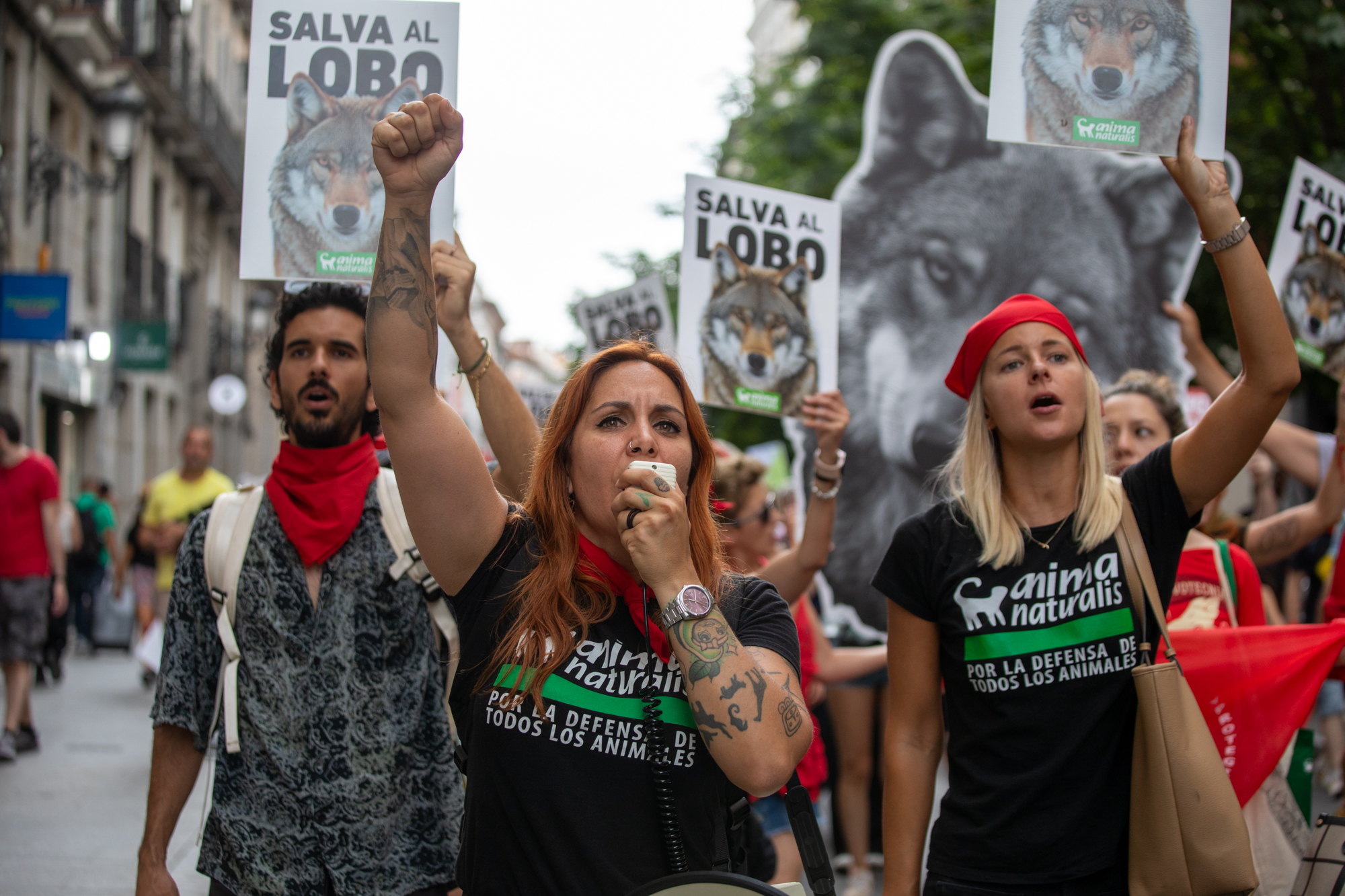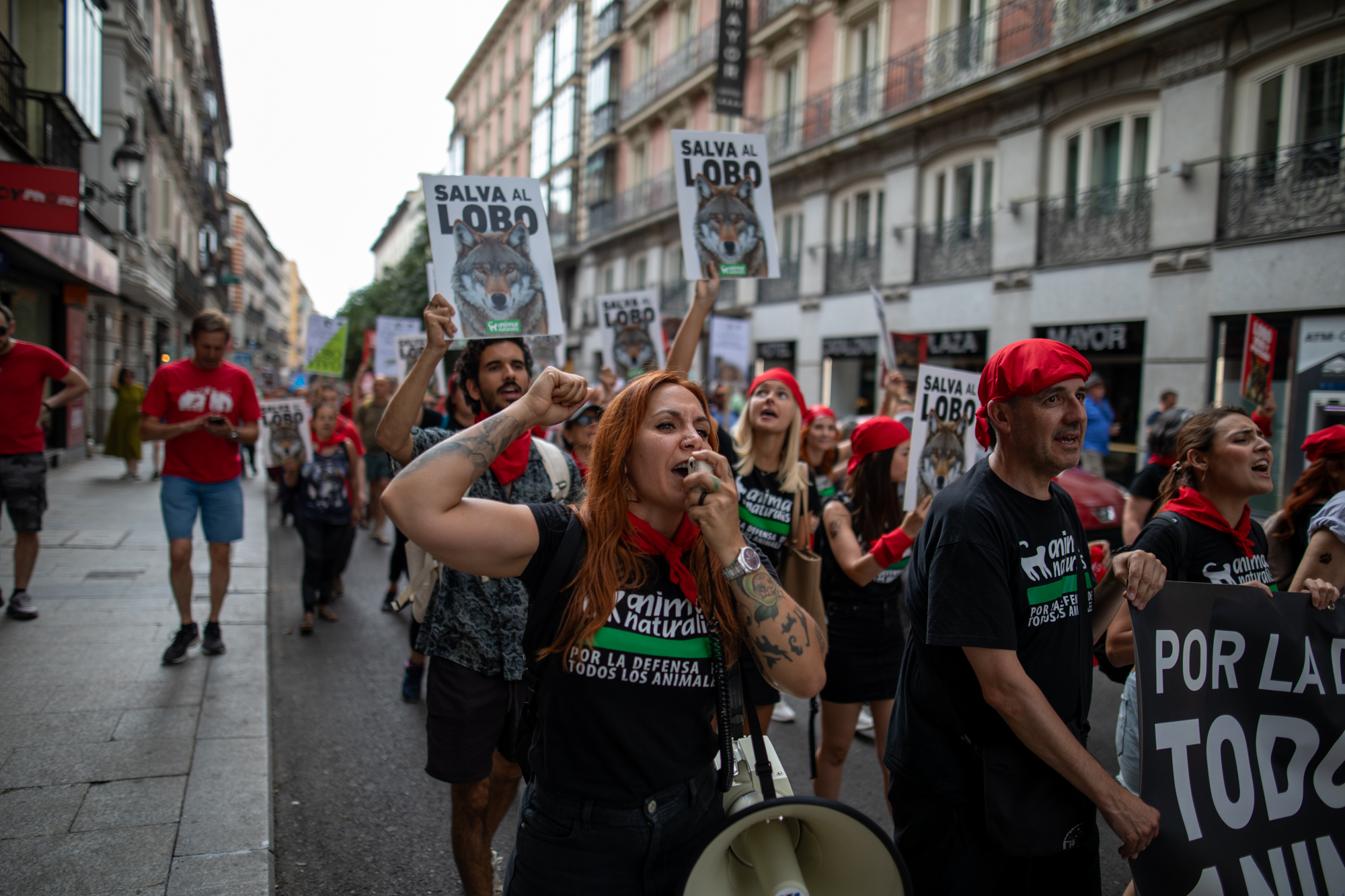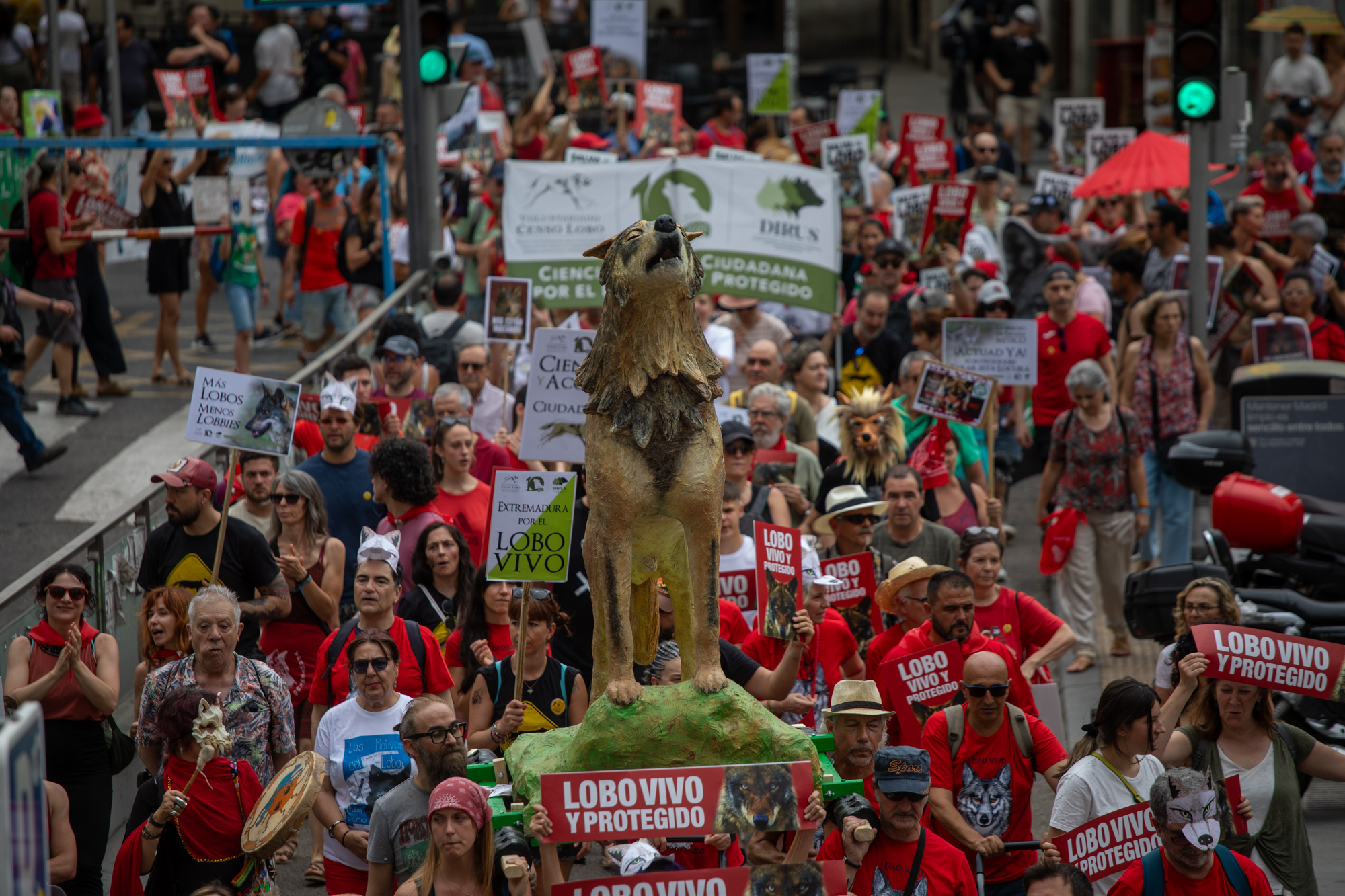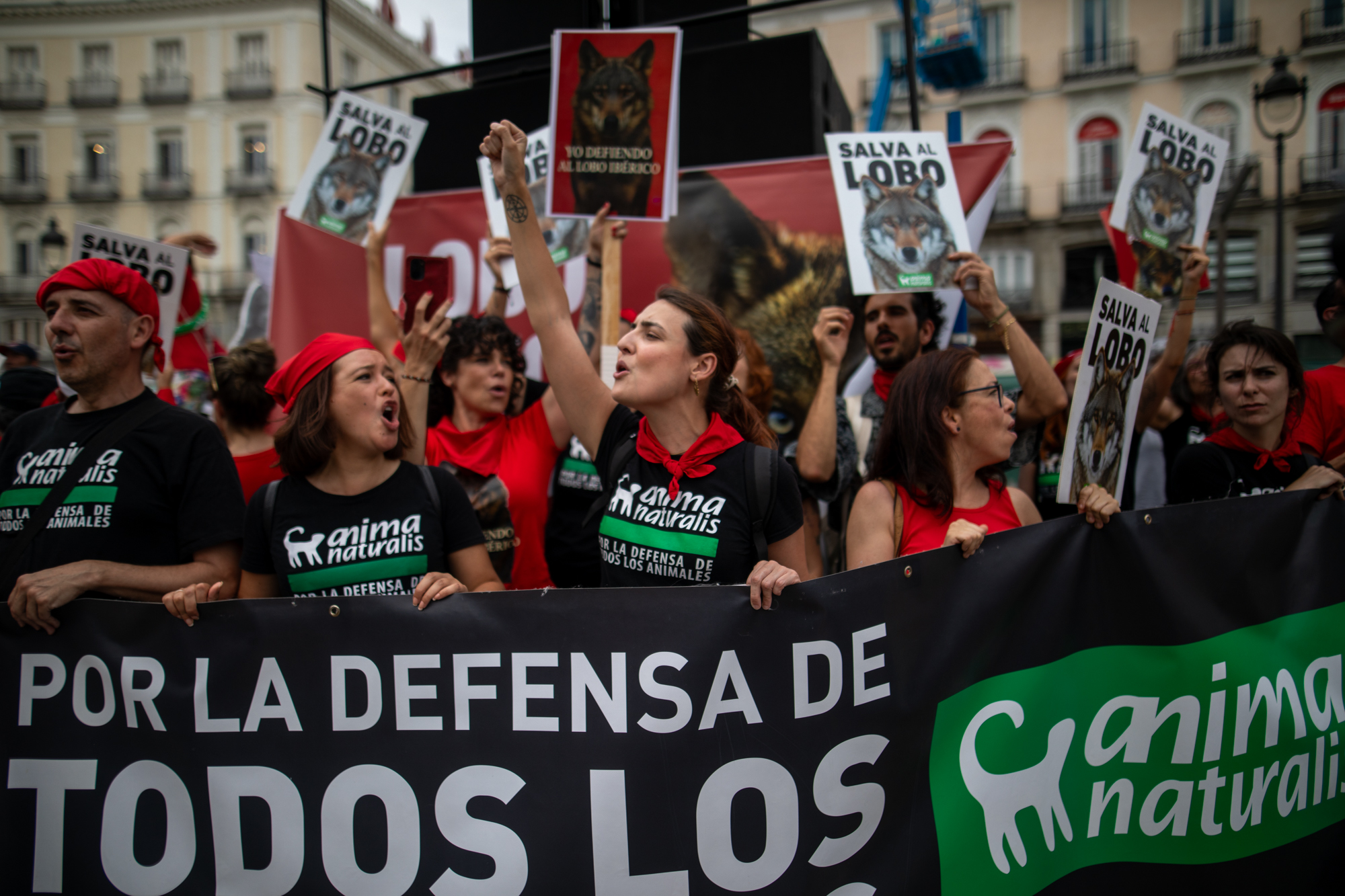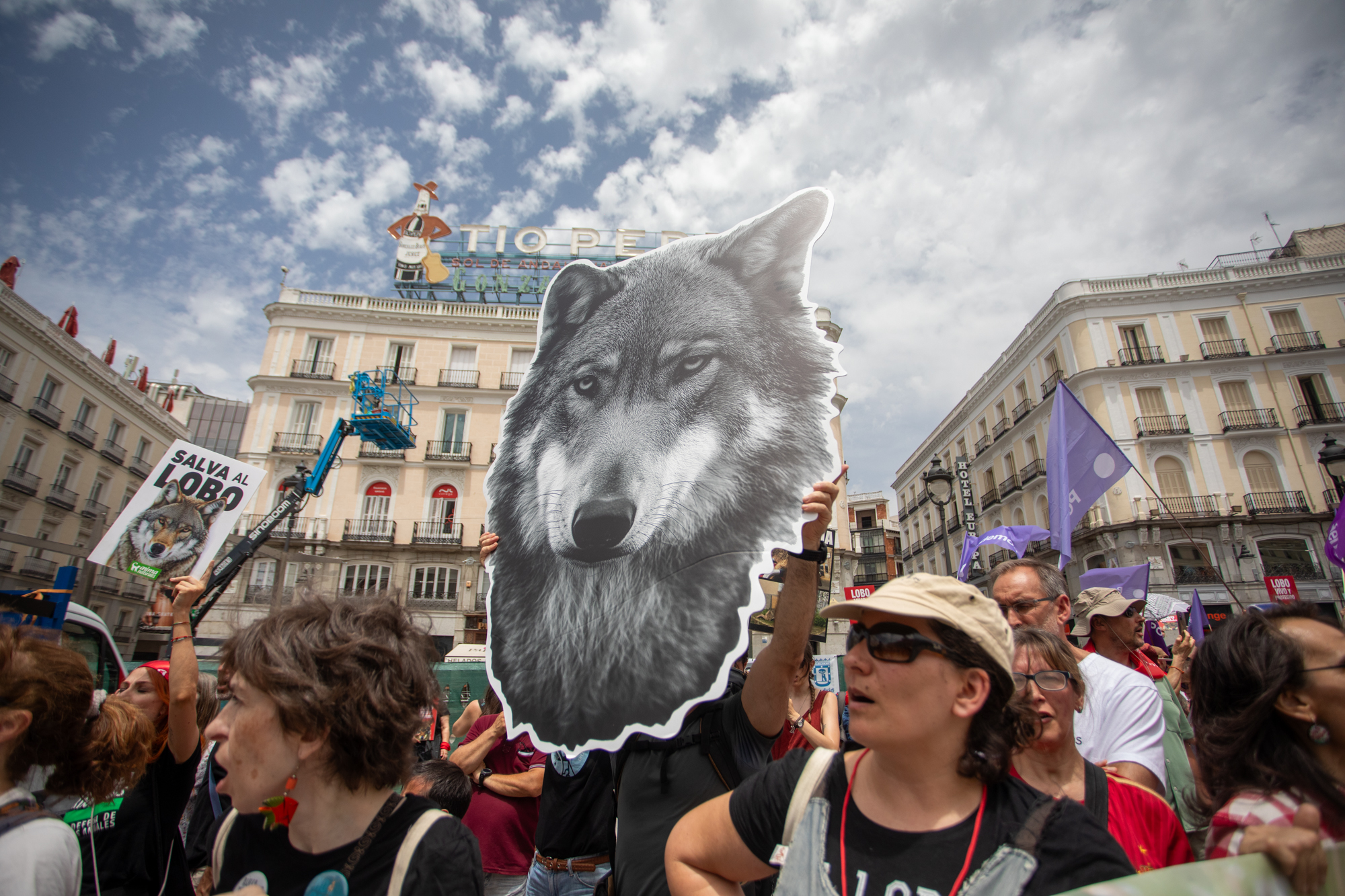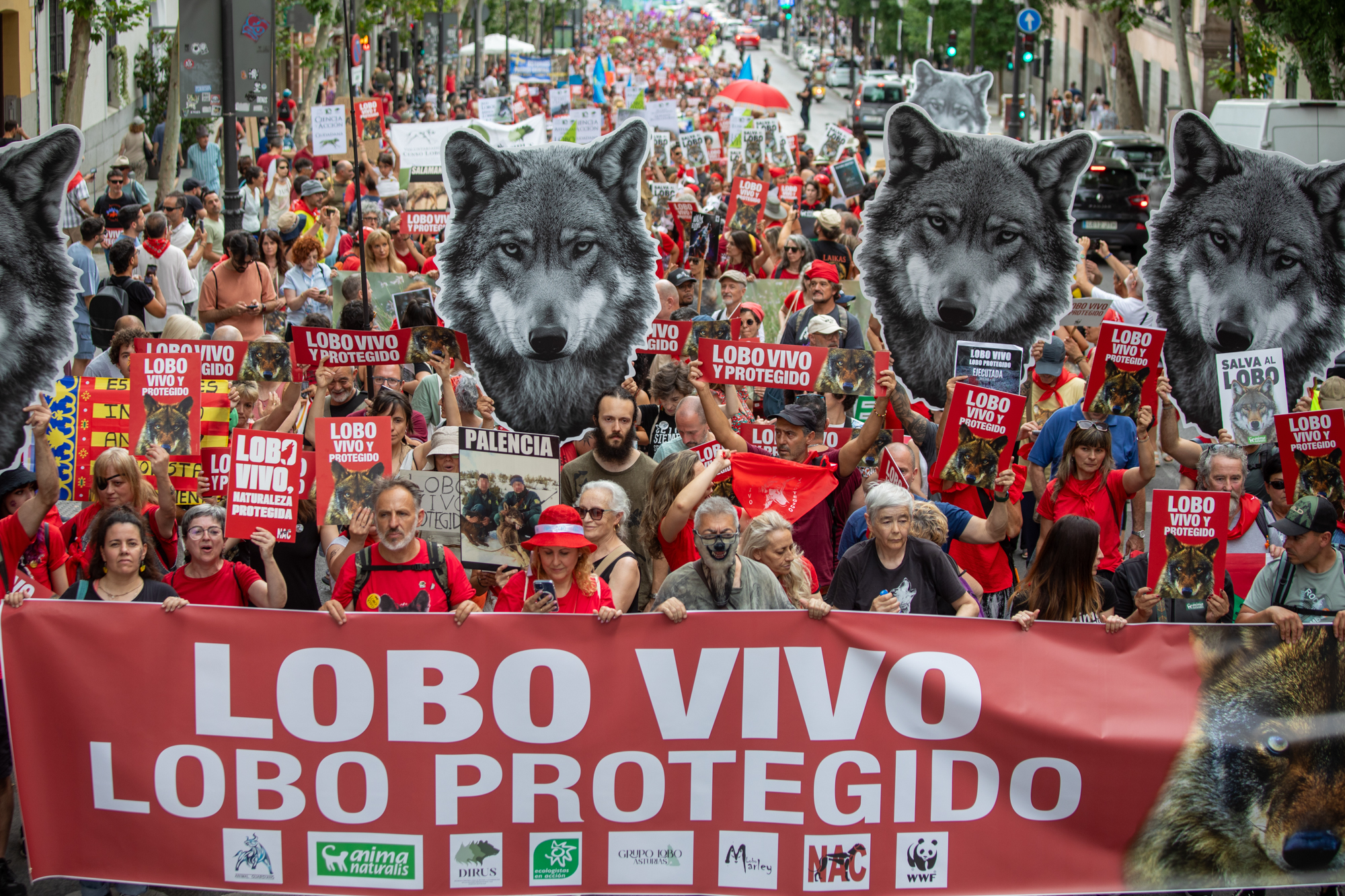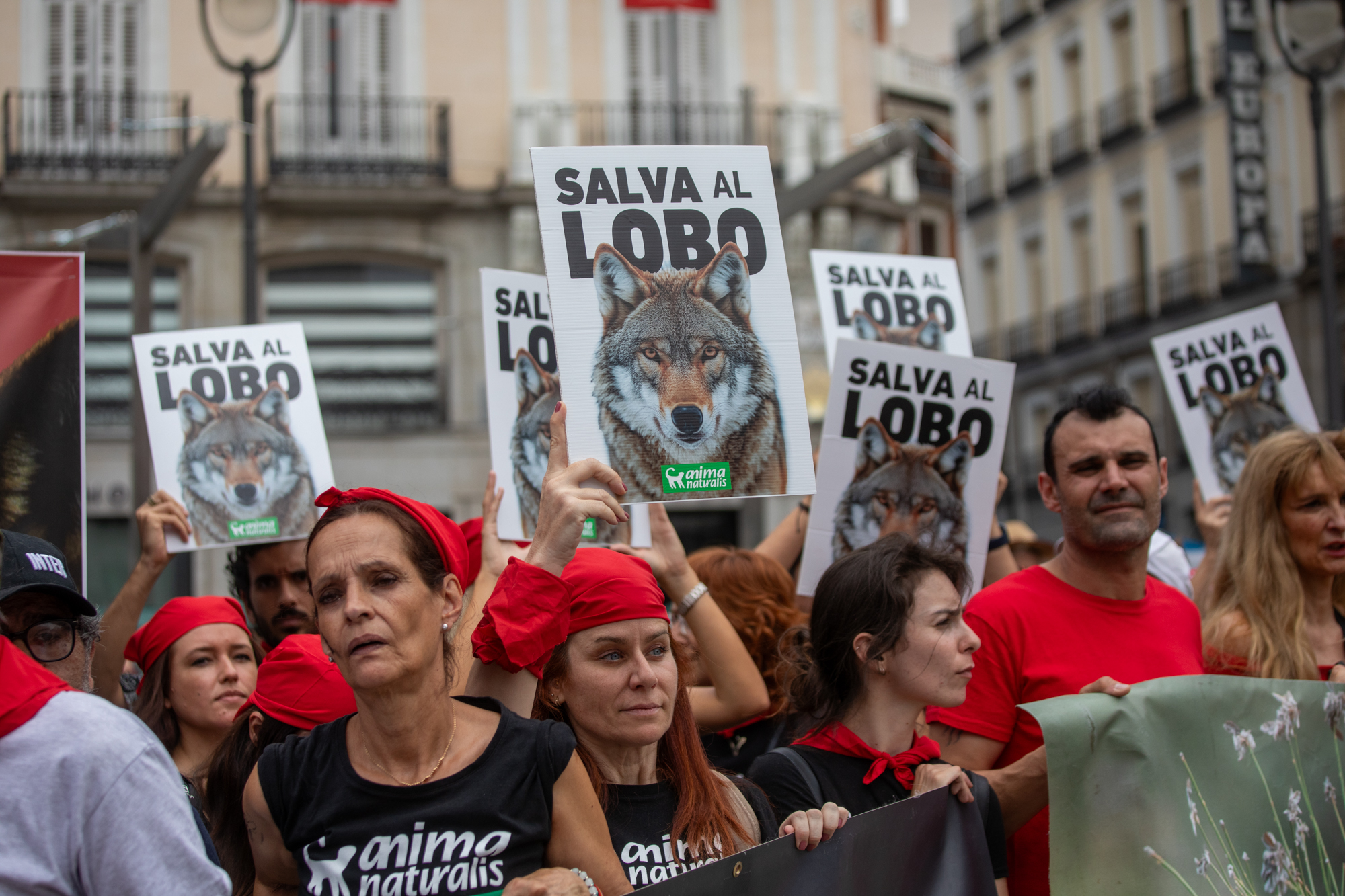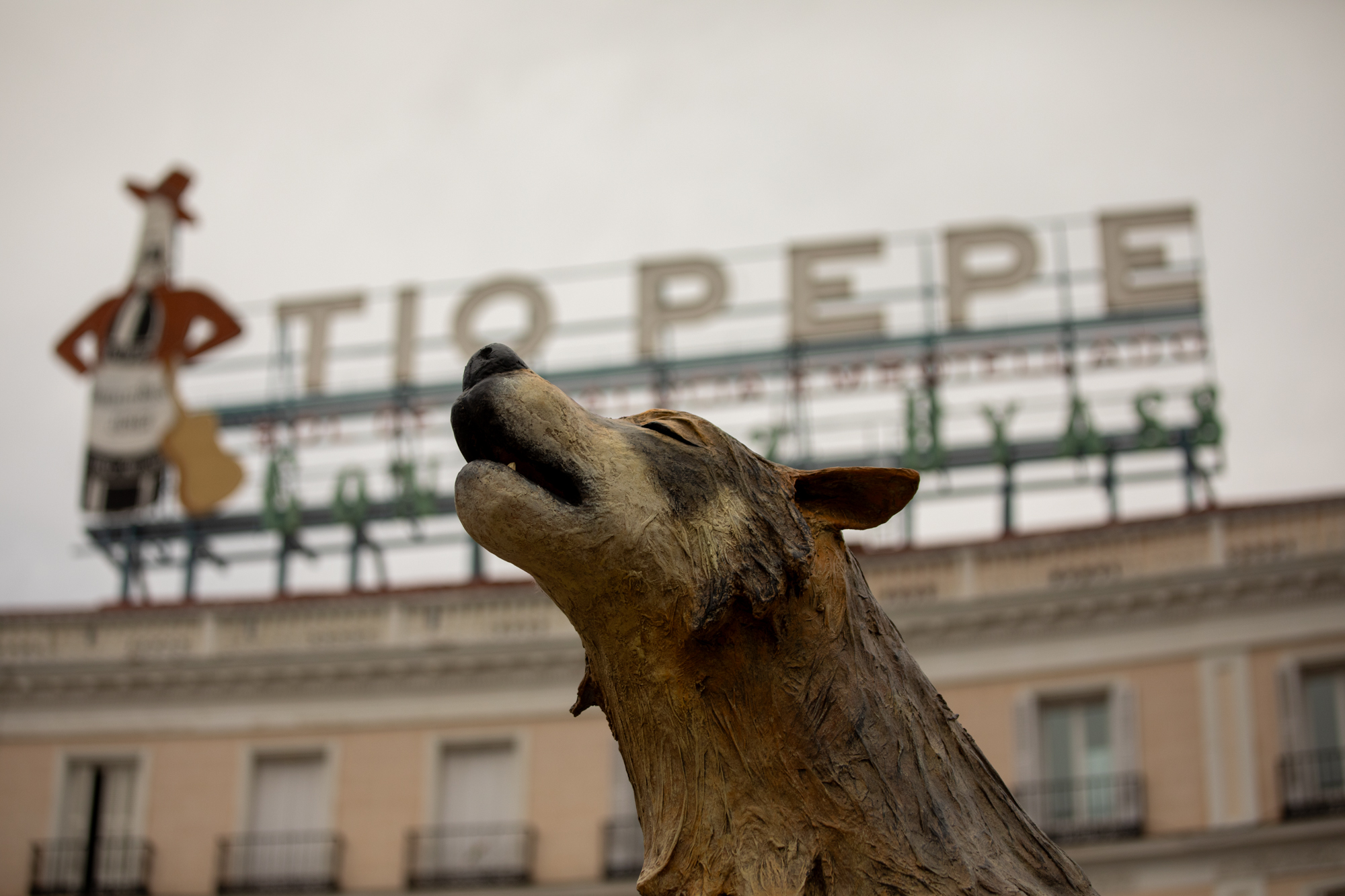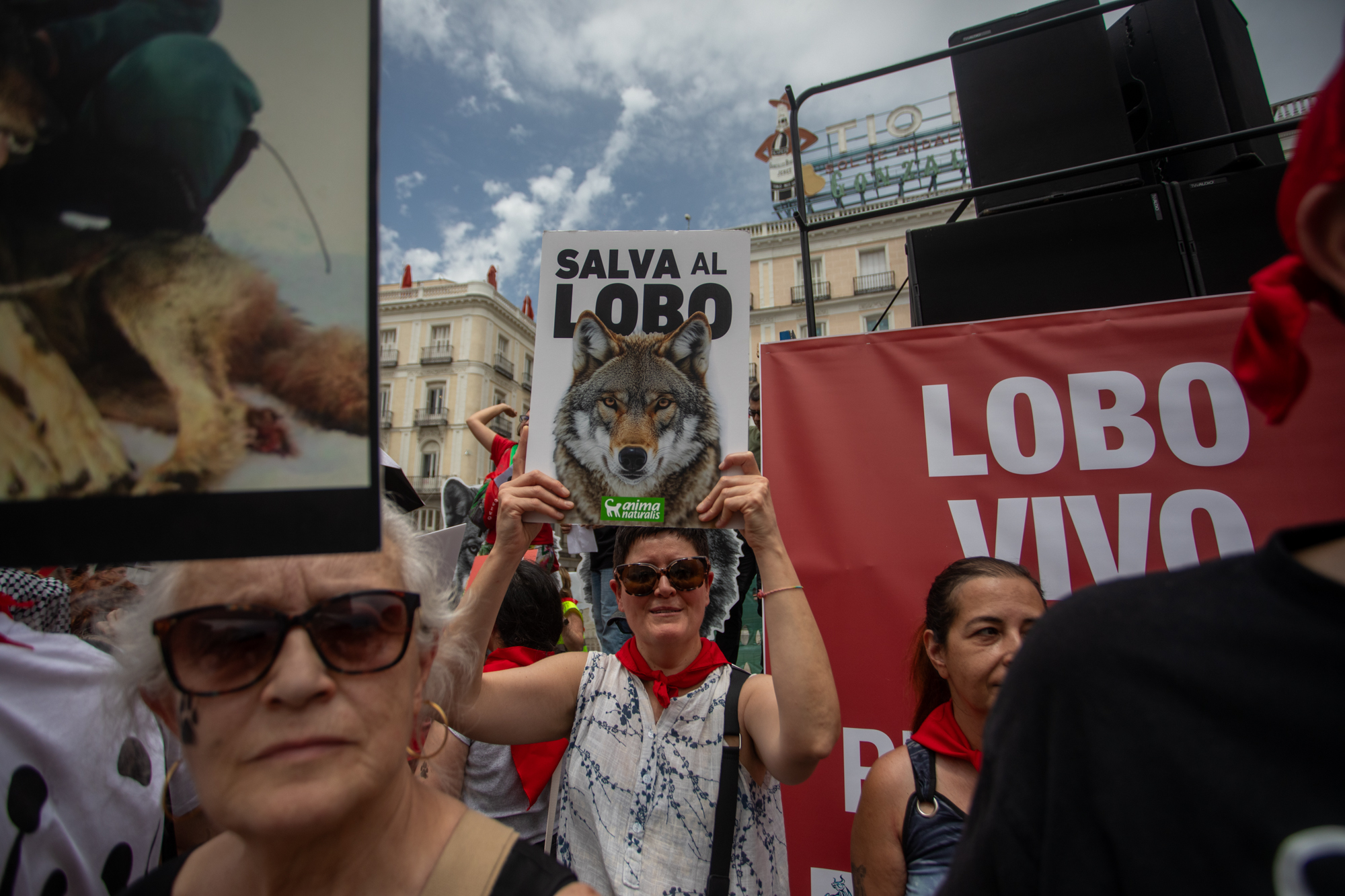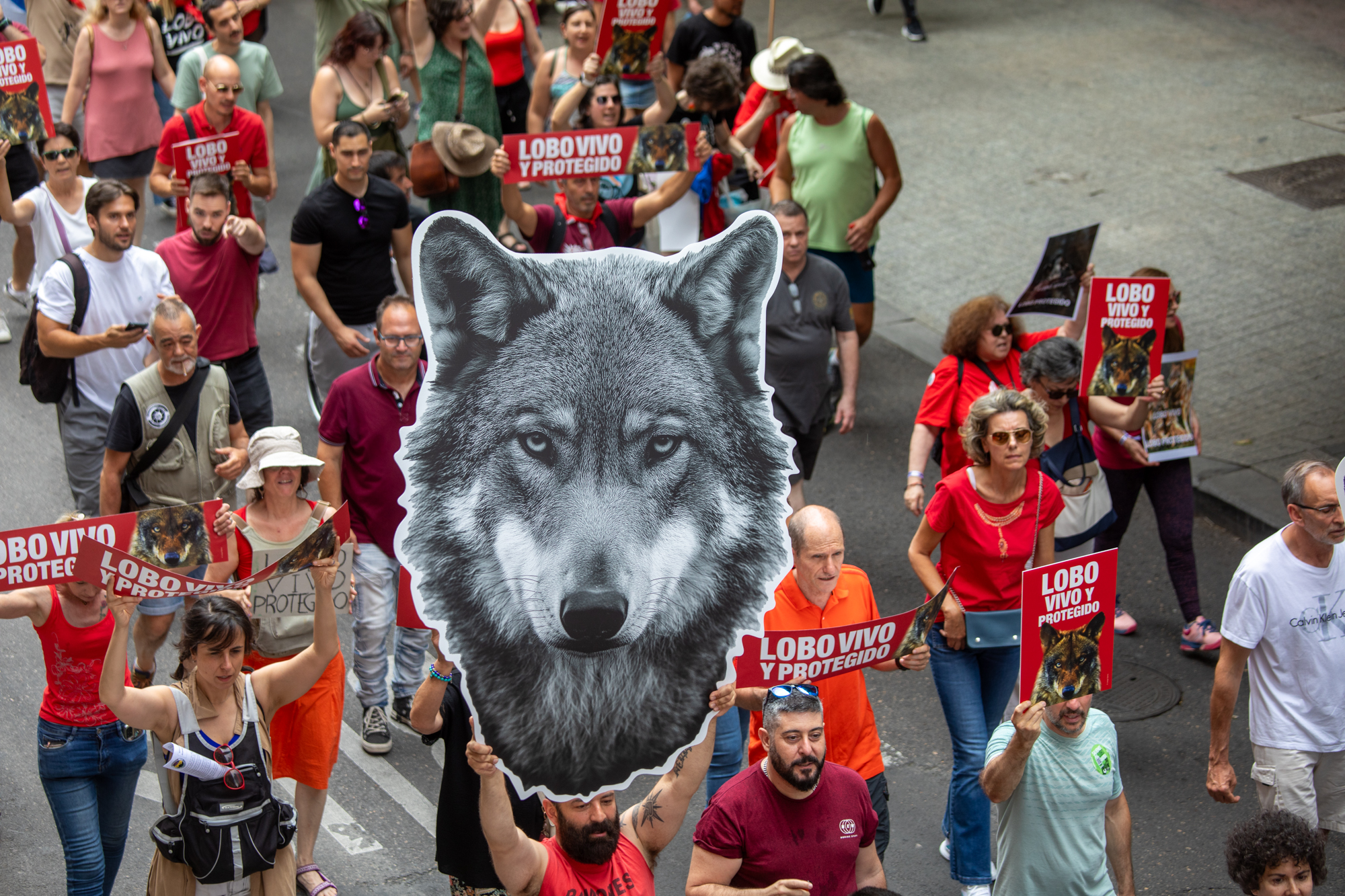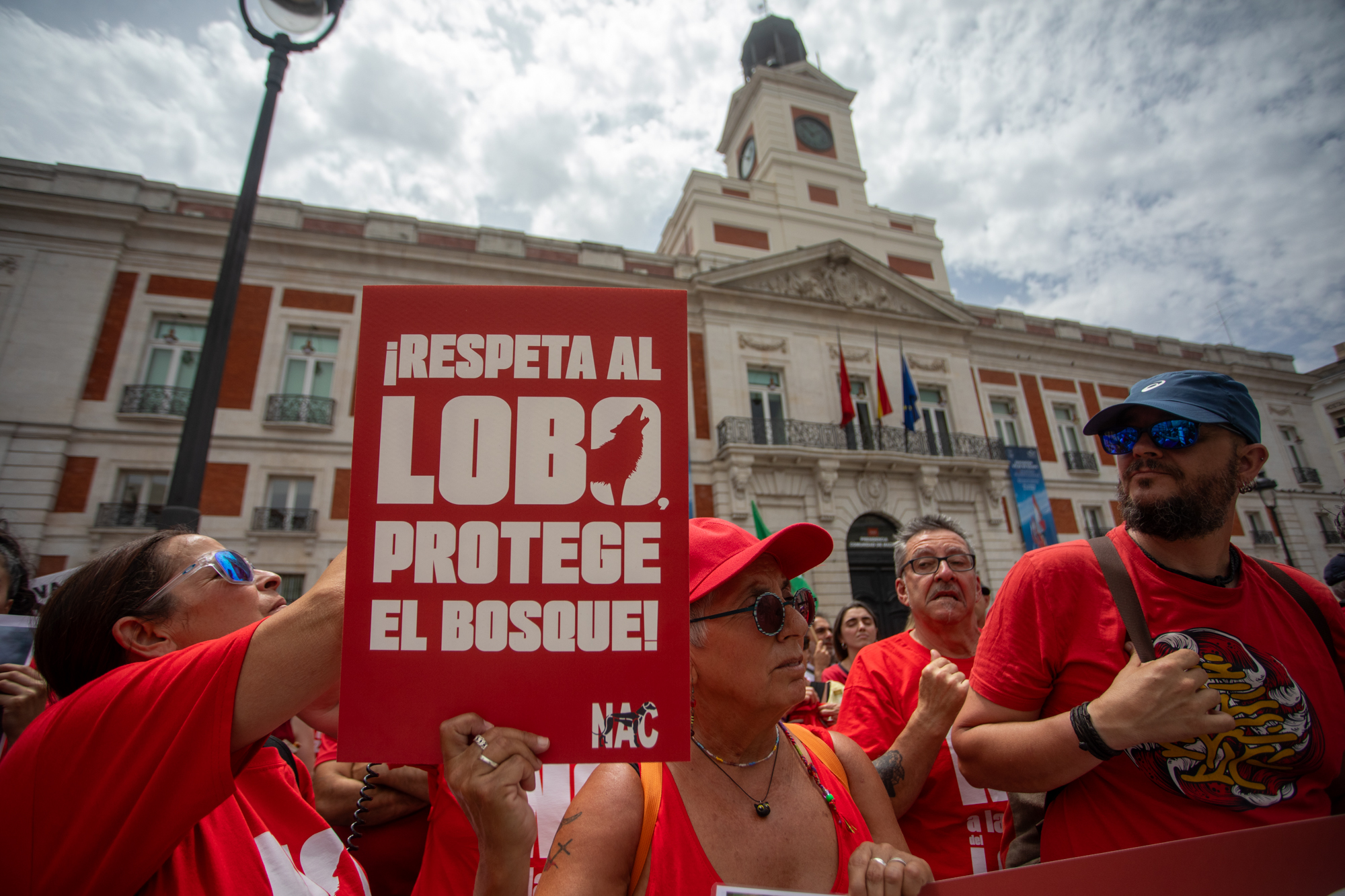This Sunday, thousands of activists from nearly two hundred environmental and animal welfare organizations took to the streets of downtown Madrid under the slogan "Wolf alive and protected", demanding the restoration of legal protection for the Iberian wolf and denouncing what they consider an unprecedented setback in conservation policies for this iconic species. Called by organizations like Animal Guardians, AnimaNaturalis, Ecologistas en Acción, Lobo Marley and WWF Spain, the mobilization brought together groups from nearly all autonomous communities, highlighting social concern over the recent removal of special protection status for populations north of the Duero River.
The protest stems from March 20, 2025, when the Congress of Deputies, with votes from the Popular Party, Vox, Junts and PNV, approved an amendment included in the Food Loss and Waste Prevention Law that removed the Iberian wolf from the List of Wild Species under Special Protection (LESRPE) in its historic range north of the Duero River. This regulatory change, denounced by organizers as a "legislative trick" that ignores established procedures and scientific knowledge, now allows population control and wolf hunts in territories where hunting them was prohibited until recently.
Moreover, this state-level abandonment threatens to extend to autonomous communities like Madrid, whose regional catalog of threatened species - outdated since 1992 - doesn't include wolves since no specimens existed in the region at that time. Should state protection fall, wolves would also become unprotected in the Sierra de Guadarrama, home to most of Madrid's wolf population.
The protest began at 12:30 PM at Atocha Station and marched through emblematic streets of the capital, with banners demanding the Iberian wolf's return to the LESRPE and compliance with the EU Habitats Directive. Under harsh summer sun, protesters of all ages also called for an immediate halt to authorized hunts in Cantabria and Asturias, despite legal challenges filed by civil society.
Throughout the march, chants echoed like "Wolf alive, wolf protected!" and "No ecosystems without wolves!", while large banners featuring a howling wolf silhouette were unfurled. Families, schoolchildren and elders demonstrated broad public support, with organized buses arriving from Galicia, Andalusia, Catalonia, Valencia and other regions.
Organizations' Demands
Organizers presented an eleven-point manifesto that, besides reversing the March amendment, calls for:
- Science-based conservation plans: Incorporating studies like the 2017-2024 Guadarrama Sierra research showing 80% of wolf diet consists of wild ungulates versus only 20% livestock, disproving alleged incompatibility with extensive farming.
- Effective prosecution of poaching and poisoning, the main causes of illegal wolf mortality.
- Wolf-livestock coexistence programs including guard dogs, fencing, and farmer compensation.
- Strict compliance with the EU Habitats Directive requiring member states to protect Annex IV species and ensure recovery of locally extinct populations.
- End to authorized hunts already occurring in some regions, which equate wolves with "vermin" from a regrettable past.
The Iberian wolf (Canis lupus signatus) plays a keystone species role in peninsular ecosystems. By regulating populations of wild herbivores like boar and deer, it prevents overpopulation that causes crop damage, disease and vegetation imbalances. International studies prove top predators maintain biodiversity and foster essential ecological processes like forest regeneration and seed dispersal.
In Spain, the wolf's natural recovery in recent decades has enabled its return to areas absent for over a century, improving ecosystem health while creating ecotourism opportunities and reversing rural abandonment. However, negative perceptions and special interests - agricultural and hunting - continue framing wolves as enemies, when livestock attacks are actually isolated incidents manageable through proper herding practices.
Current Threats and Conservation Challenges
Despite growing numbers, Iberian wolves face multiple threats:
- Illegal hunting: Half of Spanish wolf deaths result from poaching or poisoning.
- Authorized hunts: Recent reforms legally permit wolf killing in northern Spain, violating EU guidelines.
- Lack of territorial coordination: Varying regional regulations and absent national plans hinder uniform conservation.
- Misinformation and myths: Culturally ingrained "big bad wolf" stereotypes obstruct rational dialogue.
Speeches by convening organizations featured prominently. Juan Carlos del Olmo, WWF Spain's Secretary General, stressed: "It's intolerable that in the 21st century, rifles remain the primary wolf management tool when coexistence measures remain unimplemented". Del Olmo insisted "killing wolves solves nothing" and advocated the socioeconomic value of live wolves for rural recovery.
AnimaNaturalis Spain Director Aïda Gascón countered disinformation: "The 'evil wolf' fallacy is a myth created precisely to instill fear in vulnerable populations. Fear prevents rational decisions safeguarding natural spaces, wildlife balance, and the ethics of killing endangered species".
Theo Oberhuber of Ecologistas en Acción appealed to political responsibility: "Civil society demands Iberian wolf protection and an end to wolf killings. We urge all parties to commit to protecting this species".
Gascón emphasized that 21st-century society shouldn't return to "persecuting and killing wolves like vermin in dark past eras," highlighting wolves' heritage value: "Wolves belong to all society - fundamental yet fragile ecosystem components deserving full protection".
European regions have developed coexistence plans disproving wolf-livestock conflict myths, combining:
- Native mastiff dogs trained to protect livestock
- Mobile electric fencing for night pastures
- Public subsidies for protection systems and damage compensation
- Farmer training in herd management and attack prevention
In Lugo province, a pilot project reduced attacks by 70% after two years without killing a single wolf. Such experiences confirm sustainable balance is achievable with political will and resources.
Call to Action and Next Steps
The massive June 22nd protest launches a wave of mobilizations, legal actions and awareness campaigns throughout summer and autumn. AnimaNaturalis specially urges citizens to engage beyond street visibility: "Only continuous active commitment will ensure wolves stop being scapegoats and become recognized as indispensable natural actors", emphasized Gascón.
Wolf defense enjoys broad social support with solid scientific and ethical foundations. Facing proponents of simplistic extermination "solutions", civil society demands responsible conservation plans promoting coexistence and honoring EU commitments.
Wolves constitute essential natural and cultural heritage in Spain. Their recovery symbolizes reconciling rural development, biodiversity protection and wildlife respect. Restoring legal status and implementing coexistence measures will benefit both the species and ecosystem resilience.
Today, with thousands chanting "Wolf alive and protected", a new mobilization phase begins. Political decisions rest with our representatives: may they heed society's howl and defend a species needing our protection and commitment more than ever.


